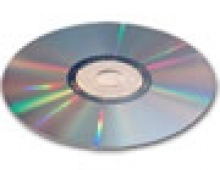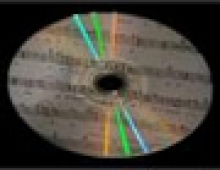
FTC Settlement May Not Lower CD Prices
"...Music fans have been overcharged nearly $500 million for CDs in the past three years alone, according to the Federal Trade Commission. So when the agency announced a landmark decision on May 10th that will force the five major record labels to stop a longtime practice of price-fixing -- known in the industry as "minimum-advertised pricing" -- speculation was widespread that the move would be a boon for consumers.
Minimum-advertised pricing is a cooperative agreement between the major labels (Sony, Bertelsmann, Universal, Time Warner and EMI) and large-scale retailers like Tower and Virgin. In exchange for promotional and advertising funds from a label, a retail outlet agrees to offer CDs at a certain price, usually around $17.98 for new titles. MAP was launched in the early Nineties at a time when non-music chains like Circuit City began moving into the music-retailing business. The massive chains offered new releases at a loss (often charging as little as $8.98) to bring consumers into their stores. The result was a price war that forced hundreds of independent stores out of business.
The FTC undertook its investigation when it detected a connection between rising CD prices and MAP. The average CD price was $13.98 in 1995; today it's $16.98. Most record-label executives would not discuss the FTC's decision, but retailers say that even if prices drop slightly following MAP's demise, the long-term effects could be worse. "With MAP in place, the consumer perhaps was paying higher prices in the short term," says John Kunz of Waterloo Records and Video, an influential independent store in Austin. "But in a non-MAP world, more and more competition gets driven out, and the prices are going to go back up, perhaps even higher.".." NULL
Minimum-advertised pricing is a cooperative agreement between the major labels (Sony, Bertelsmann, Universal, Time Warner and EMI) and large-scale retailers like Tower and Virgin. In exchange for promotional and advertising funds from a label, a retail outlet agrees to offer CDs at a certain price, usually around $17.98 for new titles. MAP was launched in the early Nineties at a time when non-music chains like Circuit City began moving into the music-retailing business. The massive chains offered new releases at a loss (often charging as little as $8.98) to bring consumers into their stores. The result was a price war that forced hundreds of independent stores out of business.
The FTC undertook its investigation when it detected a connection between rising CD prices and MAP. The average CD price was $13.98 in 1995; today it's $16.98. Most record-label executives would not discuss the FTC's decision, but retailers say that even if prices drop slightly following MAP's demise, the long-term effects could be worse. "With MAP in place, the consumer perhaps was paying higher prices in the short term," says John Kunz of Waterloo Records and Video, an influential independent store in Austin. "But in a non-MAP world, more and more competition gets driven out, and the prices are going to go back up, perhaps even higher.".." NULL




















